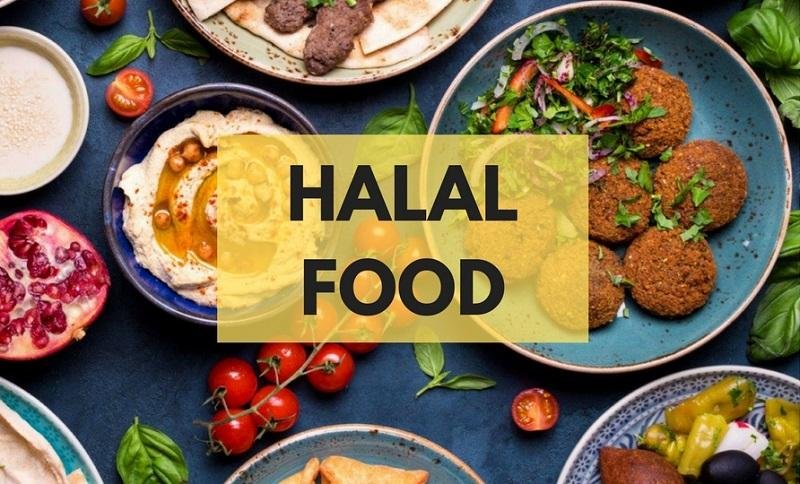Halal certification verifies that products and services comply with Islamic dietary and lifestyle standards, based on guidelines from the Quran and Hadith. For food products, this means ingredients must be permissible (halal) and processed according to Islamic law.
In the United States, halal certification is especially relevant for meat processors, food manufacturers, cosmetic companies, pharmaceutical firms, and restaurants catering to the Muslim consumer base. Products with halal certification are marked with an identifiable logo, giving Muslim consumers the confidence to buy without hesitation.
Why Halal Food Certification Matters
The global halal food market is projected to reach over $2 trillion in the coming years. In the USA, where the Muslim population is growing steadily, businesses that offer halal-certified products are better positioned to serve this consumer segment.
Key benefits of halal certification:
- Builds trust among Muslim consumers
- Expands export potential to halal-regulated markets
- Meets growing demand in retail and hospitality sectors
- Strengthens brand credibility
- Complies with import regulations in Islamic countries
How Halal Certification Works
Initial Application
The certification process begins with an application to a recognized halal certification body. The applicant provides detailed information about their operations, including sourcing, ingredients, production methods, storage, and handling.
On-Site Inspection and Audit
A qualified auditor from the halal certification agency will visit the facility. They inspect equipment, review ingredient lists, and ensure that the production environment is free from cross-contamination with non-halal substances such as pork, alcohol, or non-slaughtered animal products.
Compliance Review
After inspection, the certification body reviews the audit findings and documentation. If everything meets halal standards, a certificate is issued.
Ongoing Monitoring
Once certified, businesses are subject to regular audits to ensure ongoing compliance. Any changes in suppliers, processes, or ingredients must be disclosed and approved by the certifying body.
Who Provides Halal Certification in the USA?
Several accredited organizations in the USA offer halal certification services. Choosing the right agency is important for gaining acceptance in domestic and international markets.
Some reputable halal certification providers in the USA include:
- Islamic Food and Nutrition Council of America (IFANCA)
- Halal Transactions of Omaha (HTO)
- Islamic Services of America (ISA)
- Halal Monitoring Services (HMS)
- American Halal Foundation (AHF)
Each body may have slight differences in standards, so it’s wise to select one based on your target markets and product types.
Halal Certification Fees: What to Expect
Halal certification fees can vary based on the type of business, the number of products, facility size, and frequency of audits required.
General cost structure:
- Application and processing fee: $300–$1,500
- Inspection and audit fee: $1,000–$5,000 annually (based on scope)
- Renewal fees: Similar to initial costs, especially if additional products are certified
Some agencies offer tiered pricing for small businesses or startups, while others may bundle services based on export goals or product lines.
Key Areas Covered by Halal Certification Services
Halal certification in the USA typically applies to:
- Meat and poultry processors
- Packaged food manufacturers
- Beverages
- Nutritional supplements
- Cosmetics and skincare
- Pharmaceutical products
- Logistics and storage providers
- Restaurants and catering companies
Additional Services Some Certifiers Provide:
- Training for staff on halal compliance
- Guidance on ingredient sourcing
- Support for export documentation
- Labeling and packaging advice
- Marketing assistance in halal markets
International Halal Certification and Export Compliance
If you plan to export to the Middle East, Southeast Asia, or Africa, your halal certificate must be recognized internationally. Some countries only accept certification from specific U.S.-based agencies that are accredited by their own religious authorities.
For example:
- UAE and Saudi Arabia require certification from bodies approved by the Gulf Accreditation Center (GAC)
- Malaysia and Indonesia recognize only agencies approved by their halal boards (JAKIM and MUI, respectively)
Before choosing a certifier, confirm their international recognition and track record in your target export markets.
Common Challenges and How to Overcome Them
- Ingredient Traceability
Keeping detailed records of all raw materials and supplier sources is essential. Work only with vendors that can provide halal documentation. - Cross-Contamination Risks
Separate halal and non-halal production lines wherever possible. Use color-coded equipment or physical dividers when sharing facilities. - Staff Training
All team members involved in production and handling should understand halal requirements. Training minimizes mistakes and helps ensure compliance. - Changing Suppliers
Inform your certification body immediately when you change ingredient suppliers. New sources must be reviewed and approved before use.
Tips for Businesses Seeking Halal Certification
- Start with a small product line to pilot the process
- Choose a certifier familiar with your industry
- Allocate time for staff education and facility upgrades if needed
- Ask for a checklist from the certifying agency before your first audit
- Keep ongoing communication with the certifying body to avoid lapses
Conclusion
Halal certification is more than a compliance step—it’s a strategic decision that connects businesses to a loyal and growing consumer base. For companies operating in the USA, it opens doors to international trade, enhances brand image, and shows respect for religious dietary needs.
By working with experienced halal certification services, managing documentation carefully, and maintaining transparency, your business can build a strong presence in the halal market both domestically and globally.
